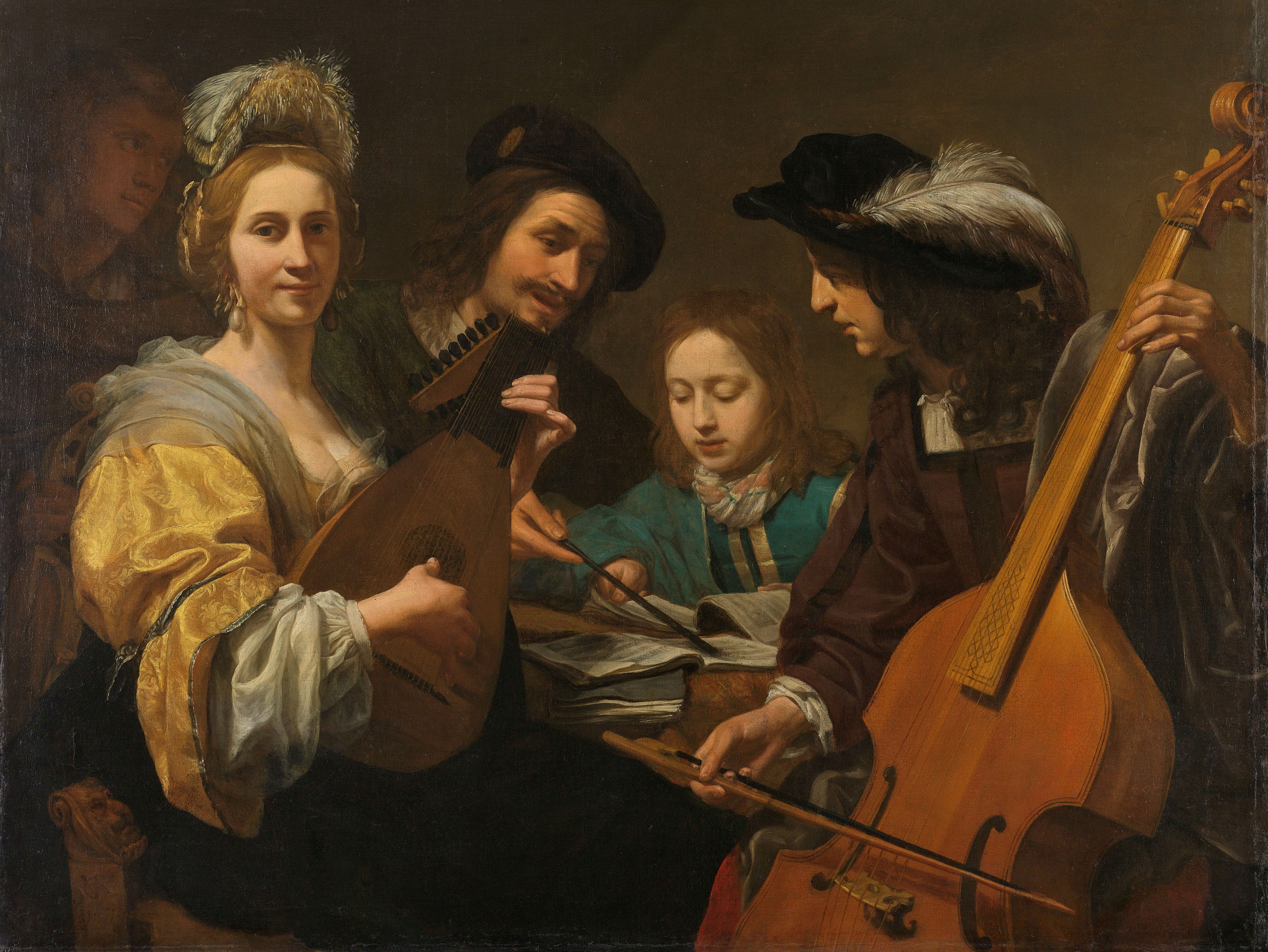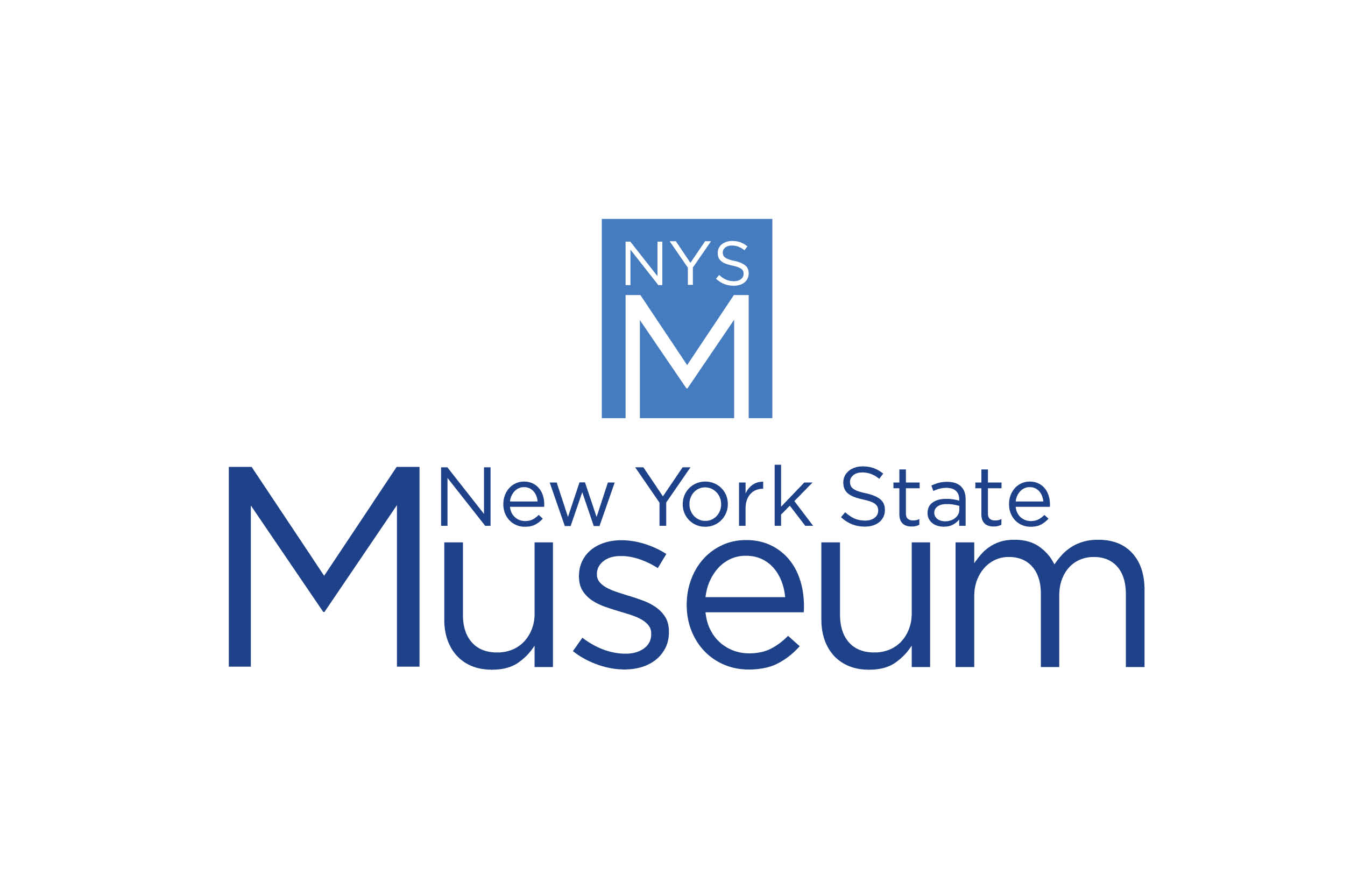
Conference Schedule
| 9:00 - 9:30 | - Registration |
| 9:30 - 9:45 |
- Welcome: Mark Schaming, Deputy Commissioner of Cultural Education |
| 9:45 - 11:15 |
- Historian Panel I |
| 11:15 - 1:00 | - Lunch Break (Lunch on your own - flyer available at conference with local venues) |
| 1:00 - 1:30 | - Performance - Indigenous Spirit Dancers of the Seneca Nation |
| 1:30 - 3:00 |
- Historian Panel 2 |
| 3:00 - 3:30 |
- Get a Feel for New Netherland |
| 3:30 - 4:30 |
- Break: Opportunity to Touch Objects |
| 4:30 - 5:45 |
- Camerata Trajectina with interpretation by Jaap Jacobs |
| 5:45 - 6:00 |
- Concluding Remarks: Russell Shorto, New Amsterdam Project at the New-York Historical Society |
| 6:00 - 7:00 |
- Reception |
Conference Bios
The Camerata Trajectina has made its name as the “Musical Treasury of the Netherlands.” Their programs combine popular ditties of the 17th century with works of the great Renaissance and Baroque composers, often presented against a political, literary, or artistic backdrop. For nearly 50 years, they have performed countless times at national memorials and royal visits, on radio and on television. They have made nearly 50 recordings and were awarded an Edison Klassiek prize for their recording of the Antwerp Songbook. The group’s members are Nico van der Meel, Wendy Roobol, Saskia Coolen, Cassandra Luckhardt, and Arjen Verhage.
Charles Gehring is director of the New Netherland Research Center in New York State’s Office of Cultural Education. The Center is responsible for translating the official records of the Dutch colony, promoting awareness of the Dutch role in American history, and providing a center for research in New Netherlandic studies. In 1973, following studies at Freiburg University in Germany, he was awarded a doctorate in Germanic Linguistics at Indiana University. Since 1974, he has been translating the administrative records of New Netherland held by the New York State Archives.
Deborah Hamer is director of the New Netherland Institute in Albany, New York. She is responsible for initiatives aimed at identifying, preserving, digitizing, and translating Dutch language documents related to New Netherland in repositories around the world, as well as for advancing scholarship on New Netherland and its place in Colonial America. Deborah received her M.A. and Ph.D. from Columbia University and was a National Endowment for the Humanities Postdoctoral Fellow at the Omohundro Institute of Early American History and Culture.
The Indigenous Spirit Dancers is a Native American Dance Group with members from various nations throughout the Haudenosaunee Confederacy who are dedicated to education performances of the Indigenous Peoples, show casing songs, dances, and storytelling. Martin Jimerson, Jr., who founded the Indigenous Spirit Dancers, began with a small group of about a decade ago, and they have now performed at events and public schools across New York State.
Jaap Jacobs (PhD Leiden, 1999) is affiliated with the University of St Andrews. He has specialized in the early American history, specifically the Dutch in the Americas in the early modern period. He has taught at universities in the Netherlands, the United States, and the United Kingdom. His publications on Dutch New York include The Colony of New Netherland: A Dutch Settlement in Seventeenth-Century America (Cornell University Press, 2009) and “The First Arrival of Enslaved Africans in New Amsterdam,” New York History, vol. 104 (2023), 96-114. He is currently working on a biography of Petrus Stuyvesant.
Maeve Kane is an Associate Professor in the Department of History at the University at Albany. Her first book, Shirts Powdered Red: Haudenosaunee Gender, Trade and Exchange Across Three Centuries with Cornell University Press, uses digital social network analysis, material culture, and Indigenous studies methods to argue that Haudenosaunee women used clothing to protect their nations’ sovereignty. She is the co-author of a new textbook for Wiley on American women’s history in addition to several articles on material culture and Indigenous history, and she is a new member of the Organization for American Historians Distinguished Lecturer program.
Michael Lucas is Curator of Historical Archaeology at the New York State Museum. He received a Ph.D. in American Studies from the University of Maryland in 2008, focusing on 17th century town development in Maryland. He broadly studies rural production, labor, and community formation during the 17th through 19th centuries. His current field research program focuses on the contributions and struggles of African American farmers in the Hudson River Valley from 1780 to 1880. Collections research includes comparative analysis of tobacco pipes, and artifact assemblages associated with enslaved people and wage laborers.
Dennis J. Maika, PhD, is Senior Historian at the New Netherland Institute. As a historian of colonial New York and the Atlantic World, he focuses on commercial entrepreneurship, political economy, slavery, and the slave trade.
Nicole Saffold Maskiell is a historian specializing in family slaveholding networks in Anglo-Dutch colonial America. Dr. Maskiell is an Associate Professor of History at the University of South Carolina. She received her A.B. from Harvard College, and her MA and PhD from Cornell University. Her book entitled Bound by Bondage: Slavery and the Creation of a Northern Gentry, centers slavery as a crucial component to the rise and enduring influence of the moneyed Northeastern elite. Her work has been supported by the Kingdom of the Netherlands and been featured on the Dutch National Archives website. She has appeared on CSPAN, the podcast Ben Franklin's World, and in a Historic Hudson Valley documentary film about the life and legacy of Margaret Hardenbroeck Philipse, an early female trader and enslaver.
Dirk Mouw is a historian and historical translator. Mouw is a fellow of the Reformed Church Center. He publishes and gives talks on topics concerning the Dutch experience in colonial America, and has also translated historical documents for the New Netherland Institute, the State of New York as well as churches, educational institutions, nonprofits, families, and individuals. He earned his doctorate in history from the University of Iowa. He has received awards and grants from a variety of institutions, including the University of Iowa, the New Netherland Institute, the Center for Reformed Church History, and the New Jersey Historical Commission.
Paul Musselwhite is an Associate Professor of History at Dartmouth College. He is a historian of early America with a particular focus on the establishment of colonial institutions such as cities and plantations. As part of that work he has considered the ways colonists interpreted and manipulated sensory experiences in new colonial settings. He is the co-editor of Empire of the Senses: Sensory Practices of Colonialism in Early America. He has also published books on Virginia in 1619 and on the Chesapeake origins of America’s urban-rural divide.
D. L. Noorlander is associate professor of history at SUNY Oneonta. His first book, Heaven's Wrath, is about the Calvinist influence in the Dutch West India Company (1621-1674). He has written essays on other Dutch colonial topics for several journals, and he is currently writing a book about Jacob Steendam and the Dutch-Akan relationship on the Gold Coast. Dr. Noorlander is a two-time winner of the Hendricks Award (2012, 2021) and one-time winner of the Clague and Carol Van Slyke Article Prize (2020).
Culinary historian Peter G. Rose is the author of 10 books including The Sensible Cook (Syracuse University Press, 1989) and her latest History on our Plate (same publisher, 2019). She is the recipient of the 2002 Alice P. Kenney Award She lectures nationally and internationally on a variety of topics related to Dutch and Dutch-American culinary history, including at the Smithsonian Institute, the National Gallery, the Peabody Essex Museum, Houston Museum of Fine Arts, Bryn Mawr College, New York University, the Culinary Institute of America, and in the Netherlands, a.o. at the University of Amsterdam and the Mauritshuis Royal Picture Gallery in The Hague.
Russell Shorto is Senior Scholar at the New Netherland Institute and director of the New Amsterdam Project at the New-York Historical Society. He is the author of seven books of narrative history, including The Island at the Center of the World and Amsterdam: A History of the World’s Most Liberal City.
Chelsea Teale is a historical geographer focused on natural and cultural landscapes in New Netherland, particularly how people used and managed resources. She is from the Hudson Valley and developed an interest in New Netherland as a graduate student investigating how wetlands in the region were valued, used, and managed by Dutch settlers. Since then, her research has moved towards a better understanding of how those settlers interacted with the environment in terms of climate and weather, flora and fauna, and so forth. Chelsea began working in the NNRC in July.
.png)

222 Madison Ave.
Albany, NY 12230
United States
| Registration | $50.00 |

